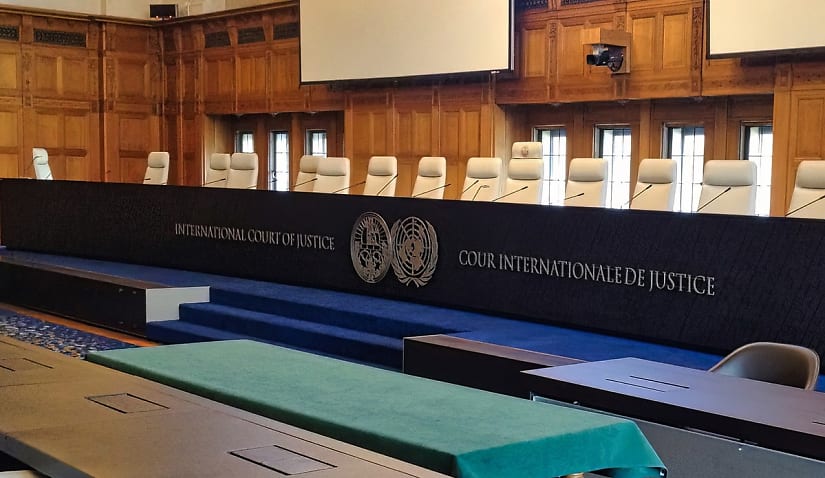A “historic” decision by the UN’s International Court of Justice has determined that countries are legally responsible for their contributions to climate change.

An advisory opinion issued by the International Court of Justice (ICJ) has found that countries have a legal obligation to mitigate climate change and limit global heating to 1.5 degrees above pre-industrial levels.
As a major fossil fuel exporter, the ruling means that Australia could now face international legal repercussions for its contributions to climate change.
Bek Markey-Towler, a climate law expert who manages Australia’s database on climate litigation, told Lawyers Weekly that the “sheer breadth and depth” of the decision had surprised her.
“It’s a really historic finding, just in climate litigation in general, and particularly at that international climate level,” she said.
“It articulates very clearly that countries have a binding legal obligation to ensure the protection of the climate system and other parts of the environment from anthropogenic greenhouse gas emissions.”
The ICJ’s determination found that countries harmed by human-caused climate change could be entitled to reparations from high-emitting countries. As a major fossil fuel exporter, Australia falls into the latter category.
“One of the things that the international court particularly called out was fossil fuel production, and what they said is that fossil fuel production, consumption licenses and subsidies could constitute an internationally wrongful act,” she said.
“We could very potentially be sued in the future if we fail to take into account the fact that we can no longer continue to approve these projects because we have obligations under international law … to reduce our greenhouse gas emissions.”
Markey-Towler said the decision should serve as a “wake-up call” to Australian policymakers, especially given that the ICJ determined that governments were indeed responsible for the emissions of private corporations operating within their jurisdiction.
“You’re still responsible for the actions of private companies where you fail to exercise due diligence by not taking the necessary regulatory and legal measures to actually limit the emissions of these private actors that are in your jurisdiction,” she said.
“If we are failing to properly regulate big fossil fuel companies in Australia, [the government] could be liable for the emissions that they’re continuing to produce.”
This means that Australia could be liable for the emissions from projects such as the recently approved North West Shelf gas project, which the West Australian government estimated would emit 80 million tonnes of scope 3 greenhouse gas emissions over its lifetime.
The ICJ also argued that it was possible to work out a country’s contribution to overall global emissions, refuting arguments that climate change was a “global problem” too difficult to attribute to any one country.
This could see high-emitting countries facing direct legal consequences for their contributions to climate change.
Vanuatu’s climate change minister, Ralph Regenvanu, has already suggested that the Pacific Island would consider litigation to leverage greater climate ambition from Australia.
“According to the advisory the ICJ handed down today, Australia is committing internationally wrongful acts as it is sponsoring and subsidising fossil fuel production and excessive emissions,” Regenvanu told ABC RN Breakfast last Thursday.
“Australia is one of the major contributors to fossil fuel production. It’s the third-largest exporter of fossil fuels in the world. It’s a major contributor to emissions … It needs to align itself with the advisory opinion and cease this conduct that is contributing to emissions and start making reparations.”
While the ICJ lacks enforcement power and its hearings require the consent from both involved parties, snubbing the court could have stark reputational consequences, Markey-Towler said.
“If a country was unwilling to submit to the jurisdiction of the ICJ, that looks pretty bad on the international stage. And reputation is really important at that international level,” he said.
She added that the ICJ ruling could bolster climate litigation in Australia by reinforcing that climate change is a legal matter, not just a policy matter.
Australian policymakers who continue to approve fossil fuel projects, now in direct contravention of their international obligations, could also face heightened scrutiny following the ICJ’s determination.
“We have obligations under international law to … reduce our greenhouse gas emissions that are aligned with the best possible science,” Markey-Towler said.
“Continuing to approve [fossil fuel] projects is totally contradictory to those very stringent and very particular international obligations.”